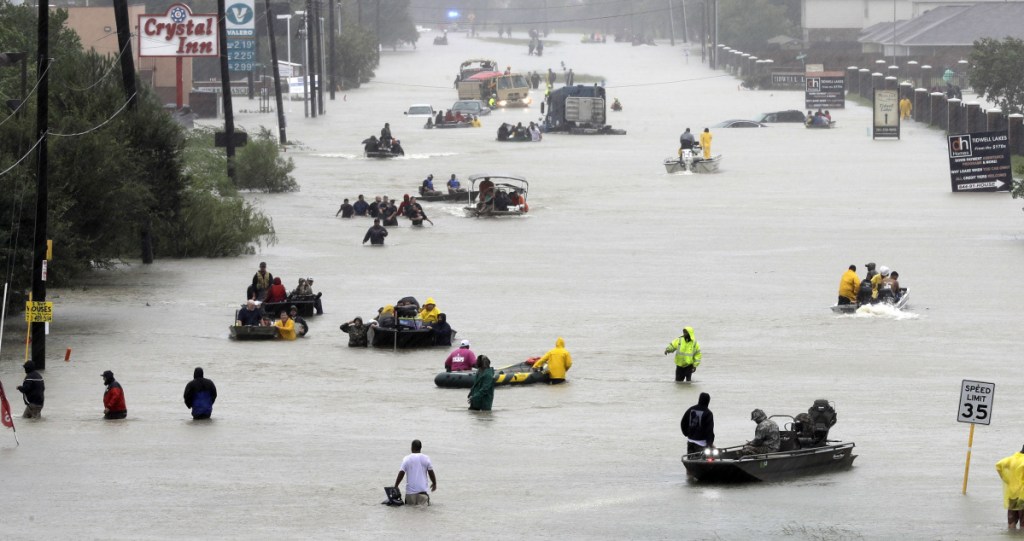WASHINGTON — Melting ice sheets in Greenland and Antarctica are speeding up the already fast pace of sea level rise, new satellite research shows.
At the current rate, the world’s oceans on average will be at least 2 feet higher by the end of the century than they are today, according to researchers who published in Monday’s Proceedings of the National Academies of Sciences.
Sea level rise is caused by warming of the ocean and melting from glaciers and ice sheets. The research, based on 25 years of satellite data, shows that pace has quickened, mainly from the melting of massive ice sheets. It confirms scientists’ computer simulations and is in line with predictions from the United Nations, which releases regular climate change reports.
“It’s a big deal” because the projected sea level rise is a conservative estimate and it is likely to be higher, said lead author Steve Nerem of the University of Colorado.
Outside scientists said even small changes in sea levels can lead to flooding and erosion.
“Any flooding concerns that coastal communities have for 2100 may occur over the next few decades,” Oregon State University coastal flooding expert Katy Serafin said in an email.
Of the 3 inches of sea level rise in the past quarter century, about 55 percent is from warmer water expanding, and the rest is from melting ice.
But the process is accelerating, and more than three-quarters of that acceleration since 1993 is due to melting ice sheets in Greenland and Antarctica, the study shows.
Like weather and climate, there are two factors in sea level rise: year-to-year small rises and falls that are caused by natural events and larger long-term rising trends that are linked to man-made climate change.
Global sea levels were stable for about 3,000 years until the 20th century when they rose and then accelerated due to global warming caused by the burning of coal, oil and natural gas, said climate scientist Stefan Rahmstorf of the Potsdam Institute in Germany, who wasn’t part of the study.
Send questions/comments to the editors.



Success. Please wait for the page to reload. If the page does not reload within 5 seconds, please refresh the page.
Enter your email and password to access comments.
Hi, to comment on stories you must . This profile is in addition to your subscription and website login.
Already have a commenting profile? .
Invalid username/password.
Please check your email to confirm and complete your registration.
Only subscribers are eligible to post comments. Please subscribe or login first for digital access. Here’s why.
Use the form below to reset your password. When you've submitted your account email, we will send an email with a reset code.